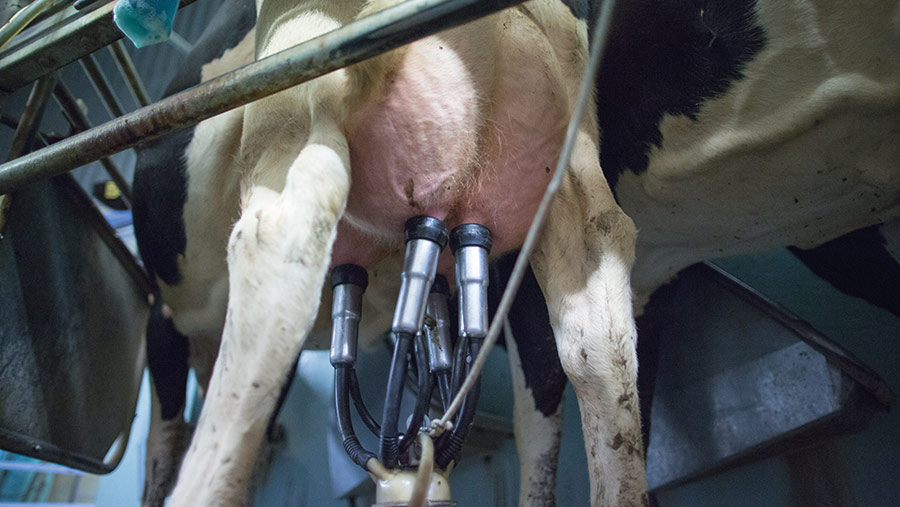What does the future hold for dairy farming?
 © Tim Scrivener
© Tim Scrivener The dairy sector is adept at evolving, and it will need to be nimble, given the sheer number of changes on the way.
Businesses will have to adapt to new legislation on nutrient management and emissions, and fund the capital work associated with environmental compliance while also losing direct subsidies.
The expectation that the industry will fulfil new climate change obligations will have implications for feed sourcing, too, says Tony Evans of dairy business consultancy Andersons.
See also: Options for reducing bought-in fertiliser on livestock farms
The next decade in dairying will be defined by business redesign to drive these changes.
Mr Evans sees it as a “massive opportunity” for a reset, but in the short term the absence of clarity on new environmental rules is holding farmers back from investing.
“It is a very brave person who is willing to spend money now. My advice to them is to keep the money in their pocket for now, because until the compliance bodies get their ducks in a row, it could be a complete waste of capital,” he says.
Meeting environmental obligations comes at a cost, and will undoubtedly increase the cost of production. John Allen, managing partner at Kite Consultancy, says this is a threat to UK milk production.
Top predictions
- Environmental regulations will increase cost of production
- Production likely to decrease as farmers exit
- Milk prices predicted to rise
- New export opportunities could become available
- Dairy processing sector will need to adapt to meet these export demands
- Labour supply will be a limiting factor
Export opportunities
But as every major exporting country will also be affected by environmental constraints, and world prices for milk and commodities could increase, there might be new export opportunities for UK producers, he says.
This would require a change of approach in the UK dairy processing sector, as it has traditionally focused on meeting domestic demand for high-value, often short-shelf-life products.
In the future, the processing sector may need to meet the requirements of very different global commodity markets to thrive, Mr Allen says.
“If the processing sector can invest and take advantage of our industry’s environmental credentials, and leverage this strong UK provenance in growing global markets, demand could remain strong.
Under these circumstances, with production likely to diminish as the industry adapts to tighter environmental requirements, the domestic milk price outlook could be strong.”
With these positive expectations, tackling labour issues in dairying will be critical to the long-term success of individual businesses.
“If you look at what is happening with hauliers and butchers, they don’t come readily available – they have to be trained first, and dairy workers are no different,” says Mr Evans.
